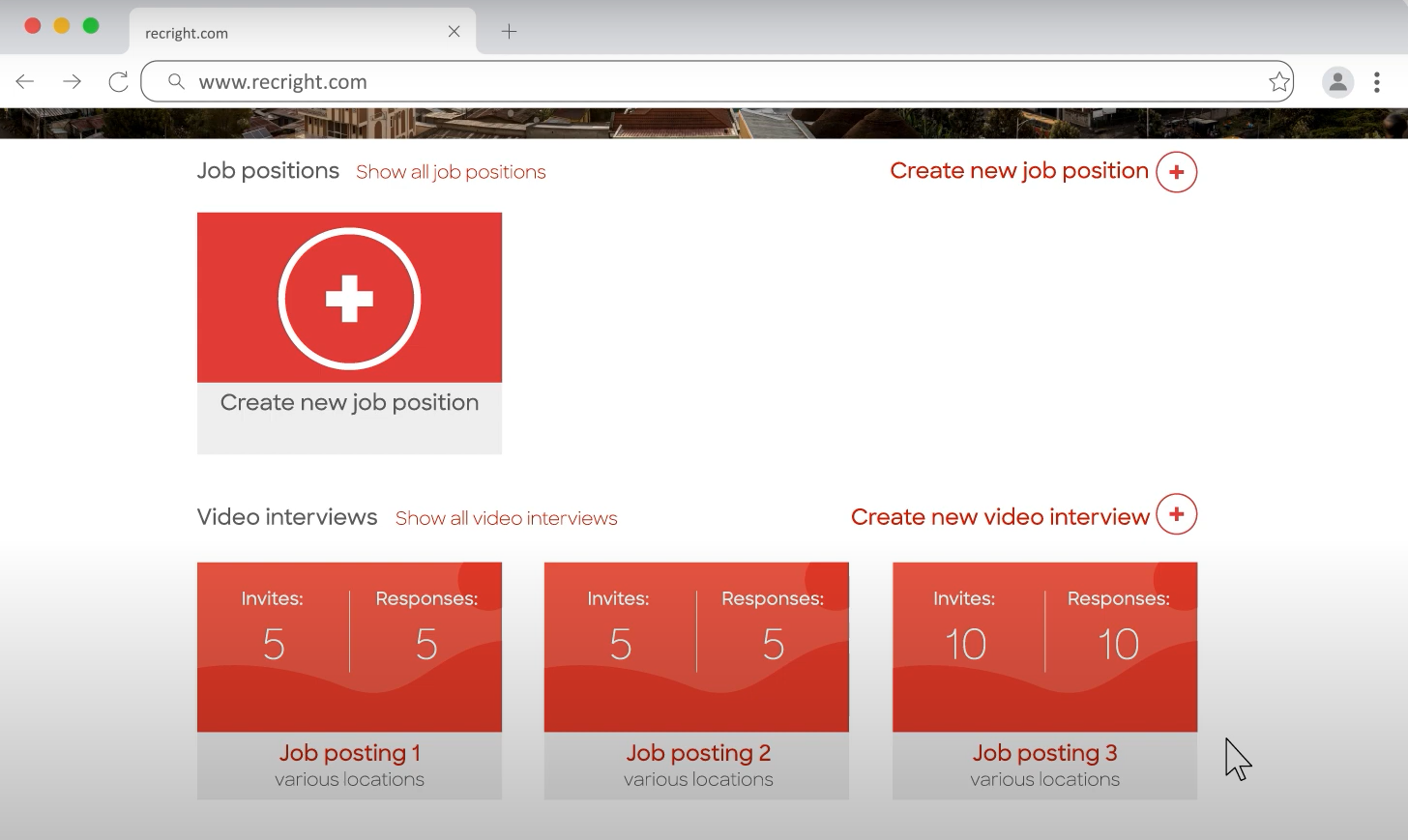Talent Assessment Blueprint: A Practical Guide to Tools and Best Practices
Looking to hire the best and brightest? While traditional interviews and gut feelings have their place, incorporating talent assessments can offer a more well-rounded view of your candidates. Here’s how this tool can be a valuable addition to your hiring strategies.
In this guide, we’ll uncover what talent assessment is, break down various methods (from work samples to AI-powered interviews), highlight key benefits, and teach you how to set up a great talent assessment program.
If you’re as excited about this as we are, join us at Willo as we dive into making your talent decisions more informed, inclusive, and effective.
What is Talent Assessment?
Imagine you’re struggling to decide between two qualified candidates for an open position. They both have great experience, the right education and relevant training for the role. So how do you then decide which candidate is the best fit?
This is where talent assessment comes in.
Talent assessments are designed to complement the traditional interview process by offering a deeper understanding of a candidate’s skills, abilities, and potential. By employing methods such as work samples, cognitive tests, and asynchronous video interviews, talent assessments provide additional layers of evaluation.
Traditional interviews provide important snapshots of a candidate but may be limited by biases or situational factors. Talent assessments enrich these initial impressions, offering a more comprehensive look at a candidate’s capabilities.
Talent Assessment Methods
There’s a range of talent assessment methods you can implement, and the type you’ll use will depend on your needs:
- Skill assessments: Organizing specific tasks carried out under test conditions. Examples include a graphic designer creating a webpage mock-up or a software engineer writing code. Tasks are simple to evaluate and show you how a candidate performs in actual job-related tasks.
- Job simulations: Mimics situations a candidate would be likely to face. Useful for positions requiring problem-solving, communication, or situational responses. Unlike skills assessments, which look at actual tasks, simulations are built to uncover how someone thinks or reacts to a scenario.
- Cognitive ability testing: Measures problem-solving, logical reasoning, and learning adaptability through general aptitude and intelligence tests. These tests are ideal for roles that require analytical thinking.
- Job trials: In a job trial, a candidate might work on a project or collaborate with a team for a given period of time. These types of trials offer a picture of a candidate’s real-world skills and cultural fit within an organization.
While the focus of this article is on talent assessment, it’s worth noting that platforms like Willo offer efficient ways to screen candidates at scale.
For example, Tunstall, a global health and care technology provider, was able to significantly boost their screening capabilities. In just six months, Tunstall screened over 700 candidates through Willo’s video interviewing platform, experiencing a 75% increase in their screening capabilities.
What are The Benefits of Talent Assessment?
Now that we’ve explored what talent assessment is and the different methods let’s dive into why talent assessment is superior.
- Smarter hiring decisions: Talent assessment tools bring objectivity to the hiring process. According to CareerBuilder, one bad hire costs companies nearly $17,000, so leveraging data to make better decisions is more important than ever.
- More inclusive hiring: Talent assessments aim to reduce the influence of subjective bias by focusing on skills, competencies, and behavior. Used thoughtfully, these tools can help create a more level playing field, enabling candidates to be evaluated more fairly.
- Cost and time efficiency: Talent assessments quickly identify top candidates, offering faster ROI. For example, MyTutor used Willo to increase recruiting capacity while reducing overhead.
How to Create a Talent Assessment Program for Your Company
To create an effective talent assessment program for your company, you can consider the following steps.
Step 1: Identify Objectives and Role Requirements
Start your candidate assessment by communicating with key team members about your objectives. Discuss how assessing applicant competencies can align with your goals.
Identify the following:
- Crucial success metrics
- Task list and functions
- Role-specific duties
- Key performance indicators
- Specific skill sets
Based on the role analysis, create a list of eligibility criteria and use this to craft comprehensive job descriptions and employment ads. Deliver these through your preferred recruitment channels.
Step 2: Pick Suitable Assessments
Start by reviewing available tests, which range from cognitive ability tests to personality assessments and skill-based simulations. Once you’ve explored these options, align specific assessments with the job requirements and responsibilities.
Many initial assessments can be conducted online, while more involved evaluations might require an in-person or virtual meeting. If you’ve been thorough in step one, pinpointing the right assessments should be straightforward.
Step 3: Administer Tests & Measure Assessment Outcomes
Administer your assessments in a manner that is both fair and standardized. Consider the following steps:
- Develop a scoring rubric: Create a standardized scoring system that outlines how each question or task will be evaluated.
- Eliminate bias: Use inclusive assessments and ensure that your evaluation team is trained in recognizing and minimizing unconscious bias. Check out these purpose-built video interview tools that help with diversity and inclusion.
- Use objective measures: Opt for questions and tasks that have objective outcomes to avoid subjectivity.
The 5 Best Talent Assessment Tools
To make your talent assessment journey easier, we’ve compiled a list of our top selection of effective tools.
Pressed for time? Here’s a quick rundown of the tools we’ll discuss:
- Willo: For asynchronous interviewing
- Maki: For personalized assessments
- Recright: For advanced ATS features
- Arctic Shores: For AI-proof assessments
- HighMatch: For assessing personality
1. Willo

Willo offers automated video interviews and assessment questions, ensuring both a personal and standardized assessment process. Recruiters can formulate questions, gather team feedback, and receive documents from applicants, all via its customizable platform.
Relevant Features
- Async interviews: Craft just one stellar interview and instantly assess thousands of eager candidates. Just share the invitation link so candidates can complete assessments on their own time.
- Digital identity verification: Easily verify if a candidate is eligible to work for you in a way that’s both secure and cost-effective.
- Integrations: Willo easily integrates into your existing workflow, offering compatibility with over 5,000 commonly used apps and platforms.
- Collaboration: Willo’s Showcase feature lets you securely distribute candidate interviews to team members, making it simple to gather insights and opinions.
- Smart question suggestions: Willo’s intelligent question generator does the hard work for you, automatically recommending compelling questions.
Precios
There’s a free plan for freelancers and small businesses along with price plans starting from $56.25 per month. Check out Willo’s pricing plans here – no contracts or set-up fees.
2. Maki

Maki is a versatile talent assessment platform that empowers recruiters to create customized psychometric tests. With over 20 ATS integrations, Maki offers multiple ways to invite candidates, including emails, direct links, and even QR codes.
Relevant Features
- Personalized assessments: Define the role you’re hiring for and customize the candidate’s platform experience, allowing for a brand-consistent process.
- Comprehensive test library: Build your assessments quickly and easily, with access to over 150 pre-made tests by industry experts. Assess everything from cultural fit to hard and soft skills.
- Bias-free assessment: Maki ensures a level playing field by offering a structured, standardized assessment process that minimizes human biases.
Precios
Pricing is available on request. There’s also the option of a free trial.
3. Recright

Recright allows you to receive and evaluate applications directly. Its pre-recorded video interviews provide a unique window into the people behind the applications.
Relevant Features
- One-stop application management: Recright offers a one-stop solution for drafting, publishing, and managing applications, simplifying your recruitment process.
- Advanced ATS features: Easily manage all recruitment activities through Recright’s robust Applicant Tracking System (ATS), which can integrate with other best-in-class ATS systems.
- Mobile-friendly platform: Both recruiters and candidates can use the platform on mobile without any additional software.
Precios
Recright offers a free trial along with personalized pricing plans.
4. Arctic Shores

Arctic Shores is a next-generation assessment platform designed to be immune to challenges posed by ChatGPT. Its task-based, interactive assessments provide deep insights into candidates, and users have experienced a 40% reduction in employee turnover in their first six months.
Relevant Features
- AI-resistant assessments: The platform offers 100% ChatGPT and Generative AI-proof assessments to ensure an accurate understanding of a candidate.
- Expert guidance: Dedicated business psychologists are available to provide advice and assistance, helping you define your criteria and understand your data.
- Simple assessment management: The Assessment and Hiring Campaign Manager feature allows you to create applications with detailed insights into candidate scores.
Precios
Available upon request.
5. HighMatch

HighMatch evaluates a candidate’s learning capabilities and overall intellect by providing a range of tests – critical thinking, logical reasoning, and problem-solving – to measure how quickly they understand, adapt, and resolve challenges.
Relevant Features
- Personality testing: Assess candidates on motivations, communication styles, and cognitive aptitude.
- Language preference: The assessments can use your preferred language for describing qualities and skills, making it highly adaptable to your corporate identity.
- Intuitive dashboards: A streamlined client dashboard displays key candidate insights, including custom ranges and topic scores.
Precios
Available upon request.
Enhance Your Talent Assessment Process With Willo
Move beyond traditional hiring methods by integrating Willo’s advanced assessment platform into your recruitment strategy. Make data-driven decisions more efficiently, improve candidate engagement, and more effectively match applicants to your team’s needs.
Take your talent assessment to the next level. Sign up for free today.





